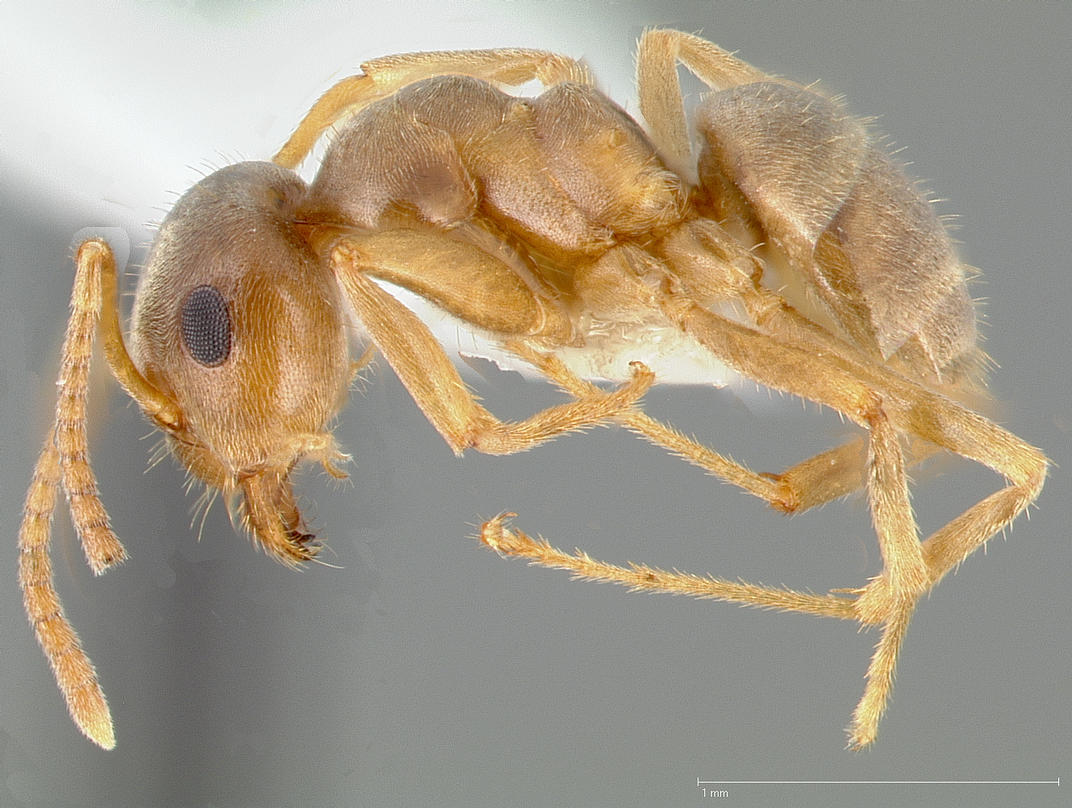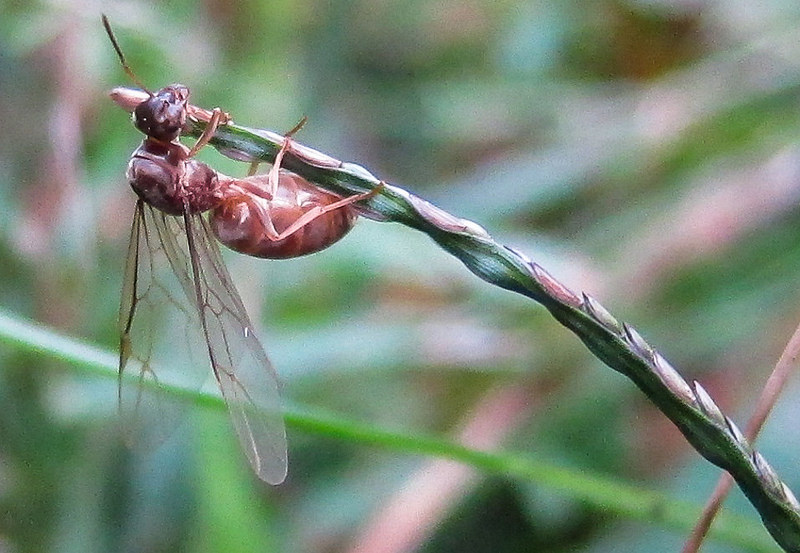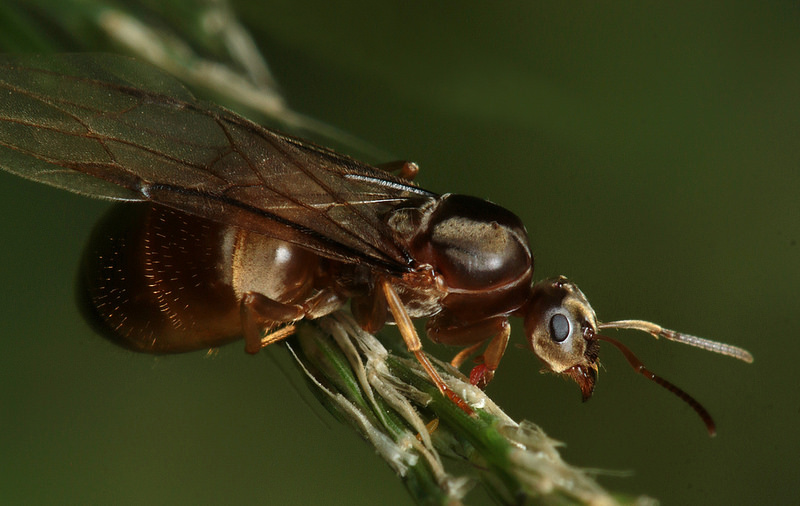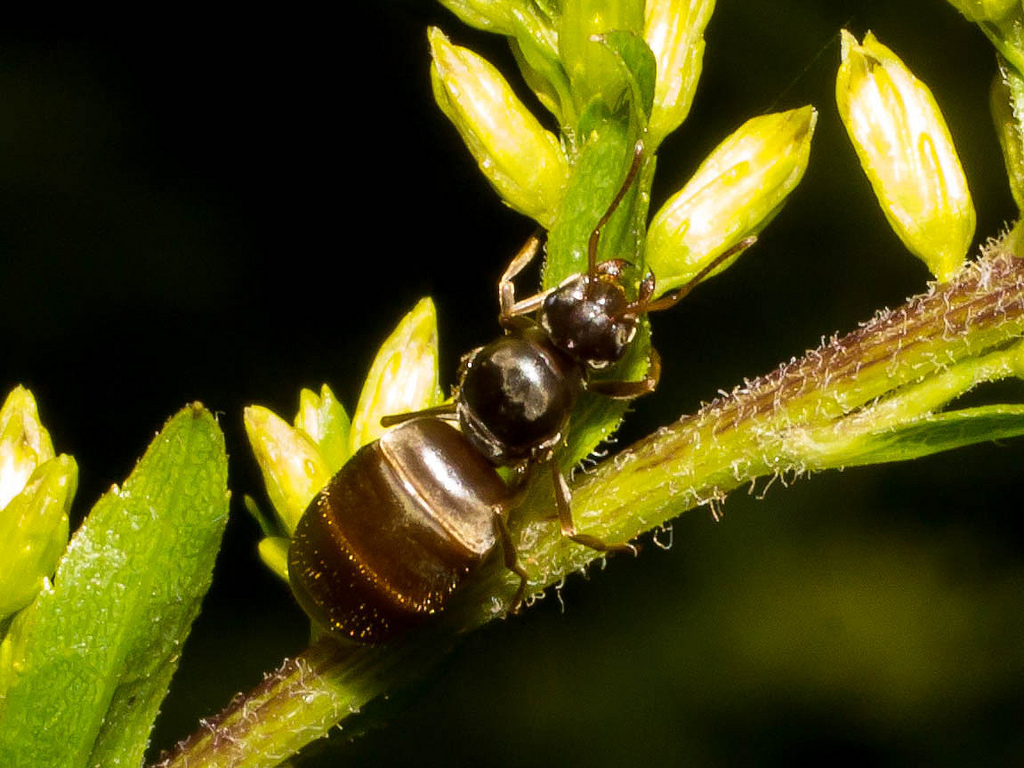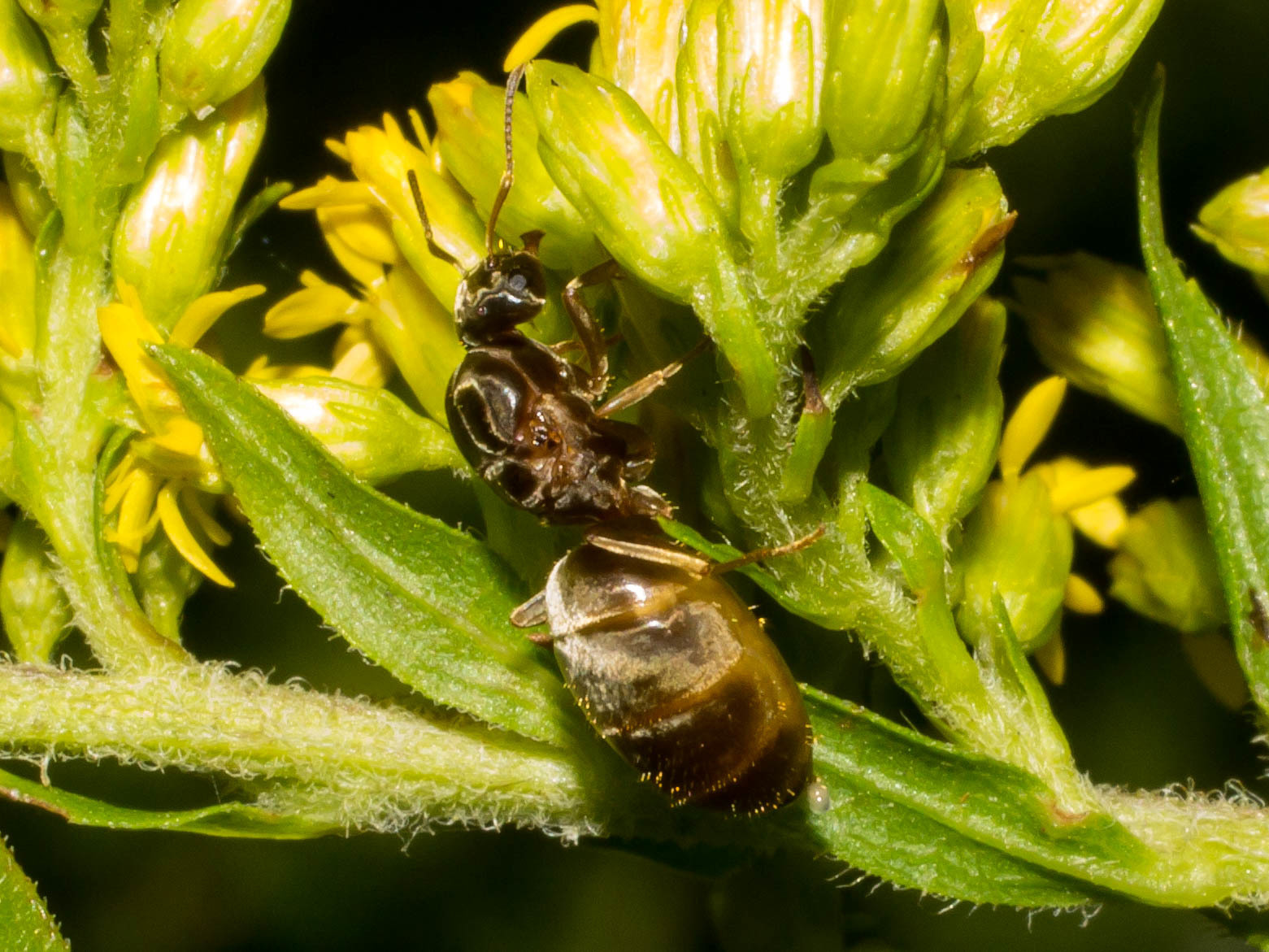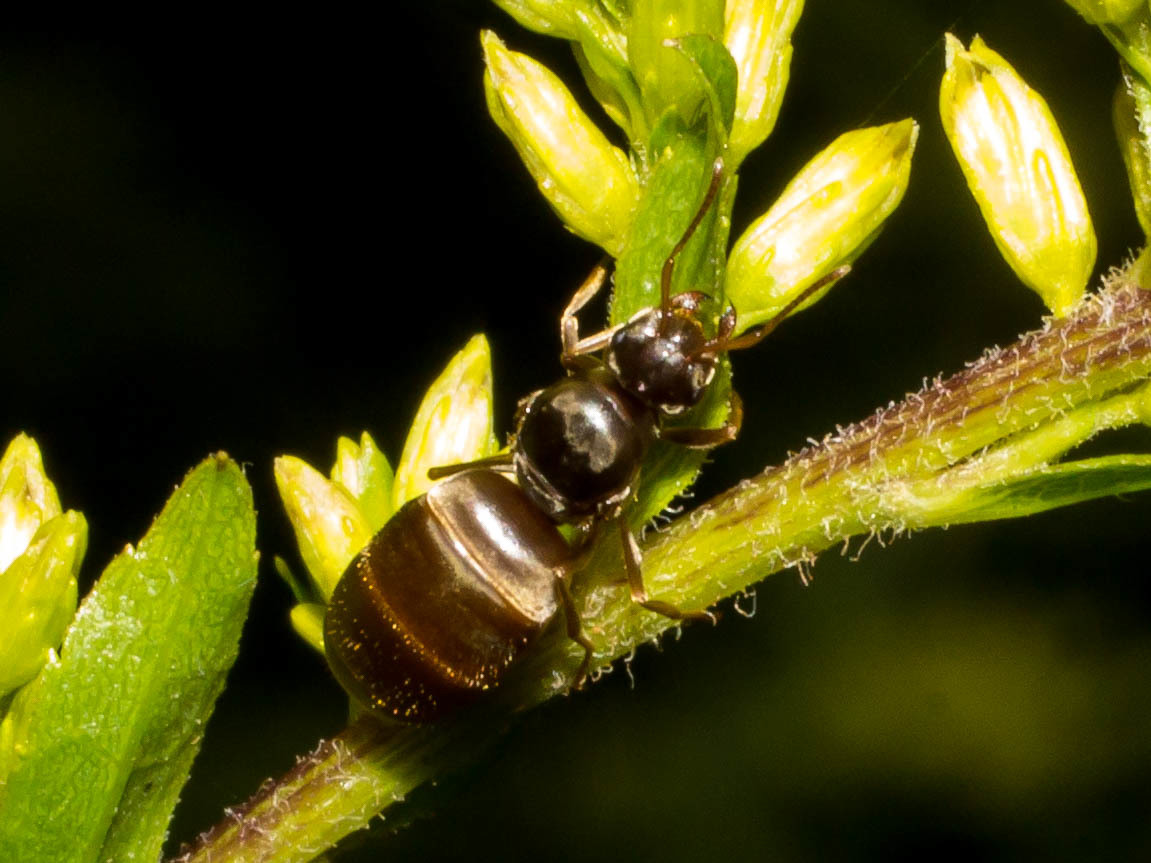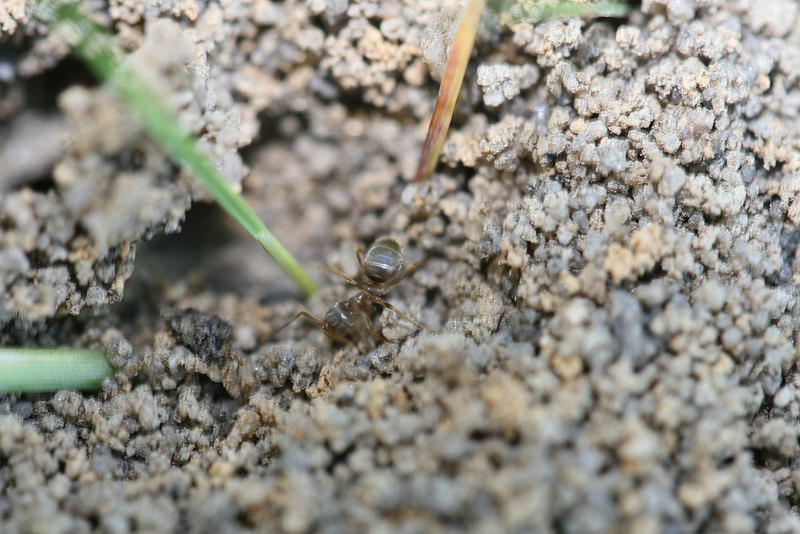Map Snapshot







14 Records
Status
Found in open, often disturbed sites, including woods edges, grassy fields, cultivated fields, meadows, prairies, roadsides, and lawns; rarely in woods though there are records from open woods. Smith (1979) notes that it is a common lawn and house pest. (See Frye et al., 2014)
Seasonality Snapshot
Source: Wikipedia
| Lasius neoniger | |
|---|---|

| |
| Lasius neoniger worker | |
| Scientific classification | |
| Domain: | Eukaryota |
| Kingdom: | Animalia |
| Phylum: | Arthropoda |
| Class: | Insecta |
| Order: | Hymenoptera |
| Family: | Formicidae |
| Subfamily: | Formicinae |
| Genus: | Lasius |
| Species: | L. neoniger
|
| Binomial name | |
| Lasius neoniger Emery, 1893
| |
Lasius neoniger, also known as the turfgrass ant,[1] Labour day ant, cornfield ant or nuisance ant, is a species of ant in the genus Lasius.[2] Found in North America, the species is common in the eastern United States and Canada, though they can be found all over the continent.[3] They are usually light brown in color, with a slightly darker head.[4]
Biology
[edit]Lasius neoniger are relatively small ants who prefer to nest in open habitats, including lawns and sidewalks. Colonies of these ants are monogynous and are unwilling to accept other queens or merge with other colonies of the same species.[5] They are one of the many species of ants who tend aphids, who provide the ants with a regular source of sugar and occasionally protein.[6]
Colonies have a nuptial flight around the beginning of September, near Labour Day. The new queens will dig a claustral chamber and hibernate for the winter before starting their new colony the following spring.[5]
Ecological impact
[edit]Due to their preference for open habitats, Lasius neoniger are one of the first species of ants to move into disturbed areas. The building of their nests triples soil respiration and increases biodiversity in the area by encouraging other insects to move in. This in turn has a trickle down effect as the new insects attract other animals and plants.[6]
References
[edit]- ^ Watschke, Thomas L.; Dernoeden, Peter H.; Shetlar, David J. (2013). Managing Turfgrass Pests, Second Edition. CRC Press. p. 452. ISBN 978-1-4665-5507-5.
- ^ Bolton, B. (2015). "Lasius neoniger". AntCat. Retrieved 30 January 2015.
- ^ "Species: Lasius neoniger - AntWeb". www.antweb.org. Retrieved 2 November 2017.
- ^ Wilson, E. O. (1955). "A monographic revision of the ant genus Lasius". Bulletin of the Museum of Comparative Zoology. 113 (1): 1–201.
- ^ a b Bustos, Mikey (2012). Ultimate Ant Keeping Handbook (1st ed.). AntsCanada. pp. 33, 58.
- ^ a b "Lasius neoniger". School of Ants. yourwildlife.org. Retrieved 2 November 2017.
External links
[edit] Media related to Lasius neoniger at Wikimedia Commons
Media related to Lasius neoniger at Wikimedia Commons- Antwiki - Lasius neoniger
